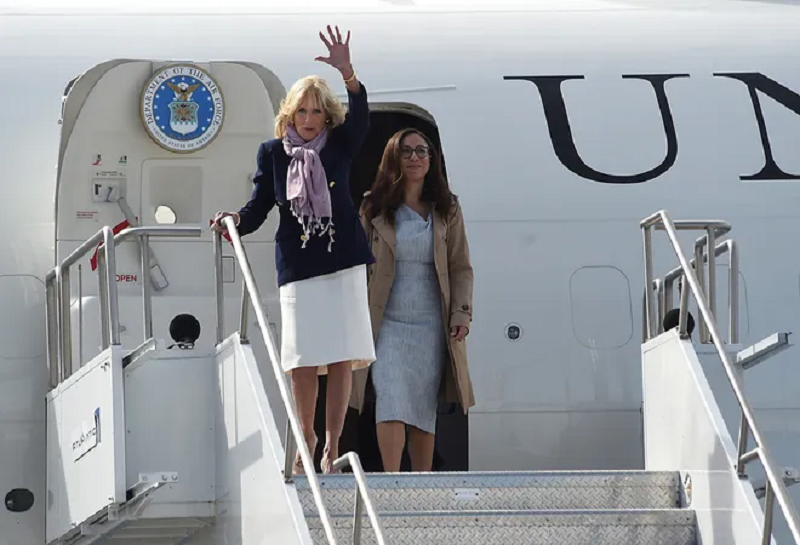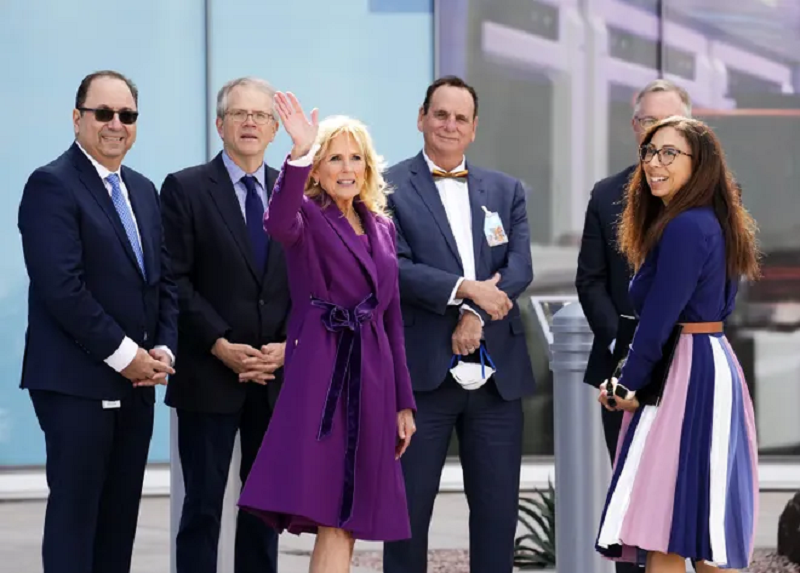
One year ago today, the American Rescue Plan Act (ARPA) changed the course of the pandemic and put us on the pathway for an equitable economic recovery. While the plan provided much needed immediate relief for working families across America, it also provided a historic opportunity for long-term workforce investment. And across the country, businesses and organizations are using their ARPA funds in innovative ways to build back a better America.
Programs like those I was able to visit this week in Arizona and Nevada with our First Lady, Dr. Jill Biden, help open up pathways to good careers for everyone, especially women and people of color, and how they play an essential role in building equity across our economy. During our visit to Intel in Phoenix, I learned more about its partnership with Mesa Community College, powered in part by ARPA funding, to build pathways to skills training and meaningful jobs. In Reno, Nevada visited Truckee Meadows Community College, which has robust training programs representing a wide range of sectors, including healthcare, that expand opportunities for students to move into good jobs. Below are a few highlights from the trip!

Intel has partnered with Mesa Community College, which has leveraged ARPA funding to develop training programs to help Intel meet critical supply chain needs.
On the visit, we heard that MCC is using ARPA funds to launch a semiconductor manufacturing boot camp in just a few short weeks — which will not only help provide trainees with a pathway to quality employment, while bolstering a critical sector of the U.S. economy to be more made in America. MCC shared that the first cohort of the program will be made up entirely of women. The First Lady and I also took a virtual tour of the fabrication lab (a clean room that you need a “bunny suit” to enter) — where Intel has been hiring and training local workers to build microchips, another vital part of the booming tech economy.
After the tour, I gave brief remarks highlighting how across the country, we are seeing businesses and community colleges like Intel & Mesa CC working together to use ARPA funds to make long-term, innovative investments in the American workforce. I also had the opportunity to introduce Michelle Blackwell — one of our tour guides in the fabrication lab – a Navy veteran and Intel employee that was able to find quality employment in a critical industry sector, as a direct result of the President’s ARPA investments.
We were next joined by Governor Sisolak and Lieutenant Governor Burkhead in Reno, Nevada to visit Truckee Meadows Community College. TMCC, like MCC, is a Hispanic Serving Institution, and a national leader in job training programs, and has used its ARPA funds to expand their programs and increase students’ access. Students we heard from spoke about how the ARPA funding helped them pay tuition, pay bills, and helped them support their families while they went to school to pursue careers in nursing and other in-demand fields.
TMCC students and faculty highlighted the innovative programing in Nursing, Emergency Medical Services, and Radiology training programs, in part supported by federal funds. The college has used ARPA funds to grow these programs and provide students the resources they need to complete their education and land a quality job. We heard from TMCC Radiology Student Savannah Terrana, a nursing student near the end of her program, who talked about how ARPA funding was a game-changer for her, as a student parent.
It was such an incredible honor to join the First Lady to hear directly from the colleges, businesses, students, and workers whose lives and communities have been positively impacted by the investments made in the American Rescue Plan Act.
Angela Hanks is the acting assistant secretary of employment and training.

 U.S. Department of Labor Blog
U.S. Department of Labor Blog